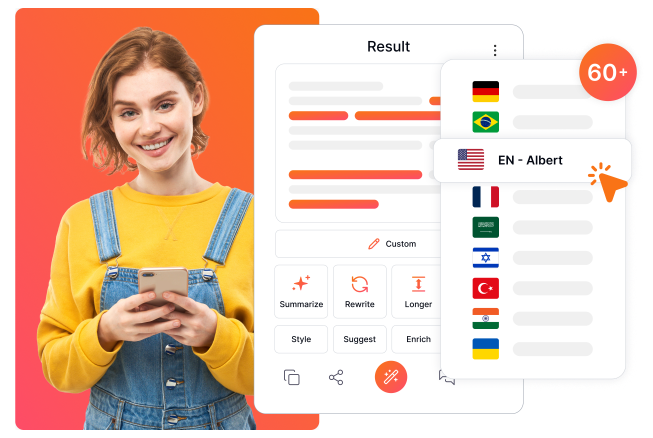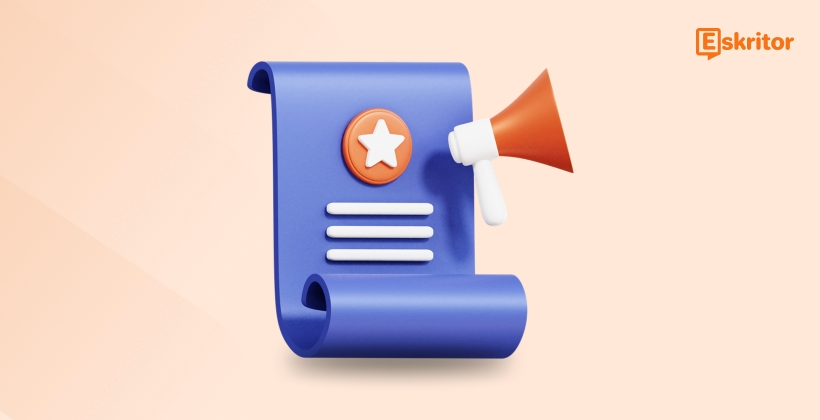AI Writing Tools vs. Human Writers – A Comparative Analysis
AI Writing Tools vs. Human Writers – A Comparative Analysis
Blog Article
AI Writing Tools vs. Human Writers – A Comparative Analysis
Artificial intelligence (AI) writing engineering has developed quickly in the last decade, reshaping the way we build and talk with published content. From grammar modification resources to AI-generated novels, the possibilities appear limitless. But wherever exactly is that technology going? Let's examine the inventions, challenges, and possible future of ai grammar checker.

How AI Publishing Engineering Performs Nowadays
At their key, AI publishing engineering depends on Organic Language Control (NLP) and equipment learning. These systems help types to understand, make, and improve individual language. Tools accessible today do well at jobs like:
1. Material Creation
AI has achieved a point wherever it may make complete blog posts, social networking captions, and actually information articles. Some types are designed for mimicking human writing models so effectively that distinguishing between AI- and human-written content is becoming significantly difficult.
2. Syntax and Type Recommendation
AI-powered writing personnel don't just always check for grammar and spelling mistakes; in addition they give ideas to boost tone, clarity, and syntax, creating complicated publishing accessible to a wide audience.
3. Emotion Evaluation
AI can assess the mental tone of a bit, allowing organizations to evaluate how their communications may resonate with readers. That is particularly helpful in marketing and customer interaction.
The Current Traits in AI Writing Technology
Several tendencies are surrounding the next phase of AI-powered writing tools:
• Personalization
AI publishing technology is increasingly effective at tailoring content to specific preferences. Versions can adjust to a user's writing style, ensuring the result feels authentic.
• Multilingual Functions
Many AI tools are increasing their global achieve by giving improved translation features and help for numerous languages.
• Enhanced Research Functions
AI tools now possess the capacity to analyze large levels of knowledge and provide fact-checked, well-researched writing in moments, simplifying the procedure for professionals in industries like legislation, money, and journalism.
What the Future Keeps for AI Publishing Technology
1. Increased Creativity
While recent AI is proficient at generating content, their imagination is still limited to styles within their education data. Future AI is not just estimated to help but to create unique, insightful operates that concern human imagination.
2. Seamless Relationship
Envision an AI that operates along with you in real-time, doing your phrases, performing stay edits, and also brainstorming ideas. AI writing tools may possibly soon become co-authors, enabling creativity to flow uninterrupted.
3. Ethical and Available Style
With growing issue about plagiarism, misinformation, and error, designers will work toward more transparent AI teaching processes and honest implementation. Potential instruments will probably present more extensive citations and steps to ensure accountability.
Issues and Factors
The progress of AI writing engineering is not without hurdles, including:
• Honest Problems

Who possesses content produced by AI? Just how can we ensure AI-generated content is not scattering misinformation? These debates remain unresolved.
• Human-AI Balance
Can AI match human imagination or totally replace particular roles? Many writers and musicians bother about their relevance within an AI-driven world.
• Supply Separate
Not all organizations or regions have similar access to cutting-edge AI instruments, increasing questions in regards to the affect of this engineering on world wide inequality.
Adjusting the Way We Create
AI writing engineering remains in their infancy compared to their potential. Whether you are students creating essays, a content marketer targeting specific audiences, or even a author seeking enthusiasm, AI instruments will continue steadily to revolutionize the publishing process. The next decade promises breakthroughs that blend human ingenuity with unit intelligence, making a potential where publishing is better, accessible, and impactful than actually before.
Report this page